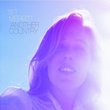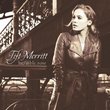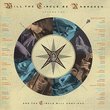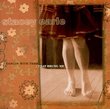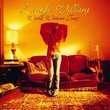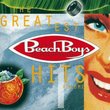| All Artists: Rodney Crowell Title: Houston Kid Members Wishing: 2 Total Copies: 0 Label: Sugarhill Original Release Date: 1/1/2000 Re-Release Date: 2/13/2001 Genres: Country, Folk, Pop Styles: Outlaw Country, Today's Country, Neotraditional, Singer-Songwriters Number of Discs: 1 SwapaCD Credits: 1 UPC: 015891106526 |
Search - Rodney Crowell :: Houston Kid
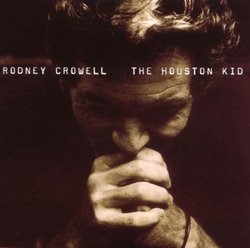 | Rodney Crowell Houston Kid Genres: Country, Folk, Pop
|
Larger Image |
CD DetailsSimilar CDs
Similarly Requested CDs
|
CD ReviewsTremendous Return To Form From Rodney Crowell Ron Frankl | Hendersonville, NC | 02/13/2001 (5 out of 5 stars) "This is an impressive return to form from an artist who has struggled artistically and commercially for much of the last decade. Like fellow Texan Willie Nelson, Crowell had the misfortune to write his most memorable songs before he became a star. "Ain't Livin Long Like This," "Til I Gain Control Again"and "Leavin' Louisiana" were hits soon after Crowell departed from Emmylou Harris' Hot Band, but they were hits for other artists. Crowell recorded three solid albums for Warner Brothers that didn't sell. It wasn't until his stay on Epic Records beginning in the mid Eighties that Rodney Crowell became a bona fide country star, with strong material that seemed to point to a new direction in Nashville. He recorded three wonderful albums that became big sellers, the best being the wonderful (and recently reissued) "Diamonds and Dirt." Along with then-wife Rosanne Cash, Emmylou Harris, Steve Earle, Lyle Lovett, Nanci Griffith and Kathy Mattea, Crowell seemed at the vanguard of an ambitious movement of songwriters and performers that could transform country music into something more than rural pop music. For a few years, these artists had some significant commercial and artistic successes, and the future seemed bright.Well, unfortunately, it didn't last. Country turned in less ambitious and serious directions. Garth Brooks, Shania Twain, and a legion of faceless cowboy-hatted singers came to dominate the charts. Rodney Crowell and these other talented artists stopped selling, at least to country audiences. As the Nineties went on, Crowell's songwriting recordings seemed less confident and inspired, and his career came to standstill. A messy divorce from Cash further damaged his image.Happily, "The Houston Kid" is a remarkable return to form. Freed from the burdens of recording for a major label, Crowell has created the most heartfelt and personal recording of his long career. Inspired by his complex and often turbulent childhood, and a troubling relationship with his father, Crowell has produced a solid batch of songs that are reflective but never morose, and only grow in power with repeated listening. Crowell's tenor voice, never his strongest attribute, has aged well and is the perfect instrument to covey this material. The opening "Telephone Road" and "Highway 17" are personal favorites. Former father-in-law Johnny Cash makes an effective cameo appearance on "I Walk the Line (Revisited)."Fans of what currently passes for country music probably won't appreciate this fine album, but if you value intelligent songwriting and singing, this is for you. Here's hoping that "The Houston Kid" is the beginning of a second renaissance for Rodney Crowell." Local Kid Does Good Denny Angelle | Richmond, Texas United States | 02/14/2001 (4 out of 5 stars) "Houston sits along the fertile crescent of the Texas Gulf Coast, plagued by mosquitoes and insufferable heat and the occasional hurricane. Music is a melting pot of blues, country, Cajun zydeco, Tex Mex and rock and roll. Houston's top musical stars are not quite like anyone else: ZZ Top, Lightnin' Hopkins, Geto Boys, Destiny's Child to name a few.Rodney Crowell is perhaps Houston's finest country export, a stellar performer and producer and a world-class songwriter who's penned hits for people like Emmylou Harris and his ex-wife Rosanne Cash (not to mention his own smash album "Diamonds and Dirt"). His new one, "The Houston Kid" puts Rodney back on the mean streets of the Bayou City, with a semi-autobiographical song cycle chock full of references to local landmarks and customs. (By the way, that's PRINCE'S drive-in he mentions in "Telephone Road," still the best place for cheeseburgers in Houston, but misprinted in the CD's lyrics.)What a tuneful batch of songs, swinging from the upbeat nostalgia of "Telephone Road" to the Springsteen/Nebraska-like "Highway 17." "I Walk the Line (Revisited)" is about as joyous a piece of country-rock as you'll liable to hear anywhere and even the guest vocalist (The Man In Black) sounds strong and invigorated.Crowell's genius is penning lyrics that feel fresh and raw like a scraped knee and hanging them on inventive but comfortable melodies. Songs like "Banks of the Old Bandera" have an unbearable sense of loss, then right on its heels there's "Topsy Turvy" that masks its pain with an uptempo beat.Americana radio ought to embrace this new Crowell CD, and if it would get played on commercial radio it sure would open some ears. "The Houston Kid" is a real gem." Very Few Men Can Write Like This Man Can!! Jef Fazekas | Newport Beach, California United States | 04/07/2001 (5 out of 5 stars) "I'm so glad I held off reviewing "The Houston Kid" for a while...waiting allowed me to write this review after seeing Rodney in concert, and I can't begin to say how much hearing these songs live made me appreciate them even more. Songs like "The Rock Of My Soul", "I Wish It Would Rain" and "Wandering Boy" bacame even more hushed and haunting; it was almost like we were sitting around the fireplace, at Grampa Rodney's feet, listening to him strum and tell tales. However, you don't have to hear these songs live to A) appreciate what gems they are and B) realize this CD may very well be Crowell's career masterpiece. Long a heartfelt, honest songwriter, he's never been moreso - almost nakedly - than on "The Houston Kid." It's best to go into "The Houston Kid" acknowledging that, yes, there's an autobiographical element to the CD, but it's not necessary to take everything at face value. Being aware of the fact that Crowell, first and foremost, is a top-notch (song) writer makes the listening process a whole lot easier. Opening up the CD is the rollicking "Telephone Road", which sets the pace for the whole album. With dead-on, picture perfect lyrics such as "barefoot heathens running wild and free", "there's a chinaberry tree I remember I used to climb in and out of my window" and "sawdust spread out on a dancehall floor jukebox ripping at an all out roar", you know Crowell is reaching back for images that were cataloged and filed away long ago, and he's taking us along for the ride. Other highlights on the CD include "Why Don't We Talk About It", a regret-tinged ode to trying to change and realizing that opening up to others has it's pluses, and "Highway 17", one of the best country story songs of the last twenty-five years. Another track worthy of particular attention is "Banks Of The Old Bandera." Sort of a "You can never go home again" song, there's both a sadness and beauty to it's melancholy. Actually, in many ways, the whole message behind this song is that you can go home, but if you do the memories you have may not be there and, even if there are, they may not be the ones you think you have. The simplicity and universality of this track is simply amazing. Wrapping up the CD are two tracks that kind of serve as bookends. "Topsy Turvy" is a biting, punch-in-the-gut rocker that doesn't cut corners or mince words. Seen from the perspective of a child who knows exactly what is going on and who hates both the situation as well as all those involved, "Topsy Turvy" is brutally honest..."I don't like a thing about the way we live" just about says it all. On the flipside of the emotional coin is "I Know Love Is All I Need." This quiet, somewhat wistful number tenderly states the fact that we all have to take the bad with the good....a task made easier if we're able to open up our hearts, forgive and move on. In closing, I think it's best to quote Stevie Nicks....Rodney Crowell has always been "a poet......yet....a priest of nothing." This poetic gift has never been more apparent than it is here, as he shares with us what it was like to be "The Houston Kid.""
|

 Track Listings (11) - Disc #1
Track Listings (11) - Disc #1
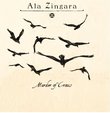

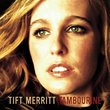
![Sly & the Family Stone - Greatest Hits [Epic]](https://nationalbookswap.com/cd//m/63/8263/18263.jpg)
